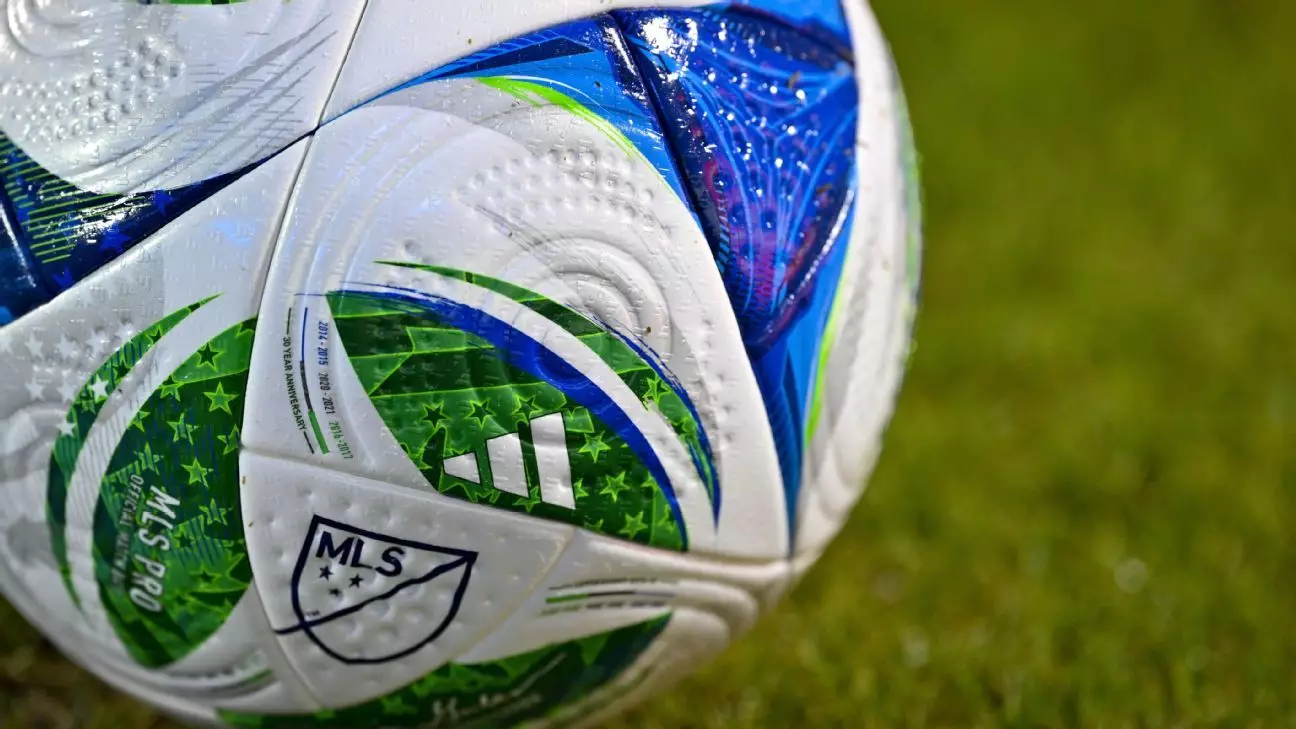The ongoing negotiations between Major League Soccer (MLS) and the MLS Players Association (MLSPA) regarding player compensation for the FIFA Club World Cup prize money have sparked significant tension. This situation presents both a financial squabble and a deeper discussion about the respect and treatment of players within the league. The Seattle Sounders FC players ignited this conflict amidst a backdrop of escalating stakes by staging a protest during their match at Lumen Field on June 1. Sporting shirts emblazoned with slogans such as “Club World Cash Grab” and “Fair Share Now,” these players signaled their growing discontent with the prevailing compensation structure.
The heart of the matter lies in the collective bargaining agreement (CBA) that governs interactions and compensations in the league. Originally outlined clauses in this agreement stipulated that players were entitled to 50% of the funds generated from outside competitions, with a cap of $1 million. Yet, the discussions show that many feel this structure is inadequate, particularly when it comes to the lucrative nature of international tournaments like the Club World Cup. The disparity between the vast sums gained by the league and the proportional share allocated to players has revealed an alarming imbalance that demands immediate rectification.
Disparities and Proposed Changes
MLS’s recent revised proposal suggests a new framework, offering players 20% of performance-related payments for victories, draws, and progression in the tournament. The players are promised a collective $1 million as a base amount for participation, but this is only the beginning of what’s owed. Notably, LAFC’s victory in a playoff that allowed them to qualify for the tournament added another $250,000 to the compensation tally, raising the question: Is this sufficient?
The players have raised their collective voice, asserting that the proposed changes are unsatisfactory and fundamentally unreflective of what they deserve from the league’s profits. The MLSPA has expressed disappointment with MLS’s approach, characterizing the league’s tactics as “retaliatory” and denoting a lack of respect for the contributions players make to their success. These sentiments highlight a systemic issue that extends beyond mere numbers—players seek recognition and valuation for their efforts on a grand international stage.
The Inequity of Financial Gains
As the negotiations stall, frustration mounts, especially with the knowledge that the MLS stands to benefit enormously from FIFA’s distribution of over $28 million related to the tournament. According to the MLSPA, players only receive a meager 10% of this total, which starkly contrasts with their role and contribution to the league’s overall value. The feeling of being undervalued is palpable among the players, and their push for a larger share of financial rewards is not merely a personal grievance but a fight for systemic justice within a league that often prioritizes profit over its athletes.
Moreover, the CBA’s current provisions render striking or other forms of industrial action impractical for players. Instead, they can engage in protected actions under federal labor laws, a subtle yet important detail that underscores the players’ precarious position. Herein lies a paradox: While the current structures aim to maintain order, they inadvertently undercut the voices of players when they decisively contest for their fair share.
A Call for Solidarity and Change
The players’ powerful stance indicates a movement that transcends individual teams and touches upon the collective welfare of athletes league-wide. By channeling their unity into a shared demand for equity, they ensure their concerns are legitimately represented in negotiations. The challenge forward is for both MLS and MLSPA to find common ground that reflects fair compensation and acknowledges the efforts of the athletes. As players like those from the Sounders proudly demonstrate their willingness to protest for change, the narrative shifts and becomes one of empowerment rather than resignation.
As the TV cameras capture the excitement of the Club World Cup, it’s imperative to recall the players behind the scenes—their diligence, sacrifices, and aspirations. The call for a more equitable distribution of wealth within Major League Soccer should not merely be a negotiation tactic but rather a principled stand for respect, representation, and fairness that underscores the very essence of sportsmanship. The unfolding drama is not just about money; it is about dignity, fairness, and the implications of a shift in the paradigm that might elevate the players’ role to what it truly should be.

